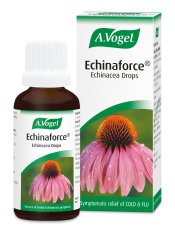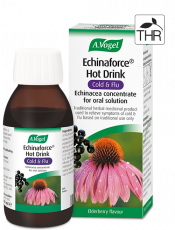Where do antibiotics come from, and why do they have a bad reputation?
The first modern antibiotic was discovered by the Scottish scientist Alexander Fleming who found by chance, that the fungus Penicillium rubens produced a substance that was able to kill Staphylococcus bacteria. He called this substance Penicillin and if one thinks about it, it can be considered to be a herbal remedy.
The techniques needed to produce penicillin as a medicine were not available until the early 1940s where it went on to save the lives of many soldiers injured during this World War who would otherwise have perished from septicaemia and other infections.
Unfortunately, antibiotics are not always used properly, and the overuse and misuse of antibiotics has now led to the serious worldwide health problem of antibiotic resistance. This means that many dangerous bacterial infections are becoming more difficult or impossible to treat. A new report from Public Health England found that in 2018 there were an approximated 60,788 new antibiotic resistant infections, which is the equivalent to 165 new antibiotic resistant infections per day.
In addition, antibiotics can also have some unpleasant side effects such as thrush and diarrhoea, because they kill off a lot of our good bacteria as well as bad bacteria, upsetting our digestive system and giving yeasts a chance to thrive.
Why are antibiotics misused?
Today, penicillins are the most commonly used type of antibiotics in the world. Most people in the UK will have heard and used the term. They are also, perhaps, the most prescribed medicine around. I once had a conversation with a sensible lady who marvelled that her grand-daughter aged one and a half was so healthy that she had ‘only’ needed 5 courses of antibiotics in her life!
And herein lies the problem for doctors. Most people (including children) coming to see a GP with a cough or lingering cold will have a viral infection. Antibiotics treat bacteria, not viruses, and hence are not effective in the vast majority of people suffering from colds or flu.
However, viral infections can ‘turn into’ bacterial infections which respond to antibiotics. A doctor often finds it difficult to tell if this is likely to happen or when, as there are no clear physical signs or symptoms. Tests will take a few days to come through and when they do, may not be of help either. So, a doctor facing this circumstance may simply prescribe an antibiotic ‘just in case’, without knowing for sure that it is needed.
What are the results of antibiotic misuse?
Hundreds of thousands or even millions of these ‘just in case’ situations have meant that bacteria around us have become increasingly exposed to antibiotics whether they are causing us harm or not. These are clever organisms and knowing how antibiotics work to kill them off, they have developed defence mechanisms to protect themselves against attack. They become resistant to antibiotics.
Some authorities also speak about the overuse of antibiotics in intensive farming methods, adding to the problem.
Antibiotic resistance becomes a health issue when a bacterial infection becomes less treatable or untreatable. Over the years, many of these have been described – including often heard names such as MRSA (Methicilllin Resistant Staphylococcus aureus). This is the same Staphylococcus that Fleming worked on and, Methicillin was once thought to be the most powerful type of penicillin!
Even relatively common infections such as boils or pneumonia can become more difficult to treat if the bacteria causing it have become resistant to antibiotics, limiting the choice of treatment.
So when are antibiotics useful?
It is clear that antibiotics are good for us when used appropriately. This class of medicine has the ability to save lives when serious infections are around. I am a firm believer in natural and herbal medicine, but if I had a serious infection and there was an antibiotic that could help me, I would not hesitate to use it. There is a time and place for everything.
However, for many years now, antibiotics have been overused – over-demanded by patients with viral colds or flu and over-prescribed by doctors.
The problem of antibiotic resistance is coming to the point where, for more and more people, when this useful class of medicine is needed, it may not work as effectively. One day, it may not work at all.
Originally written 13 January 2014 (updated 4 November 2019)









